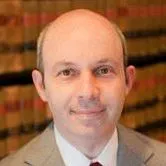A tale of two great arguments

on Mar 27, 2012 at 5:40 pm
Having now had a chance to take a breath from thinking about the substance, I wanted to step back and comment on the advocates. I really only heard a couple of minutes of Michael Carvin’s argument, but I was there for almost the entirety of Don Verrilli’s and Paul Clement’s. Paul told me that Don was terrific, and I’m sure Don would say the reverse. I certainly think that both were tremendous. We’ll have the consolidated version of the argument tape up soon, but I thought I’d give a couple of examples now.
General Verrilli had one stumble out of the gate as he had to get a drink of water and then restart, but immediately got his footing. I thought all of his answers were clear and straight to the point. The most impressive thing about it is that – even if the government wins – it had the much harder case to argue. The plaintiffs have very clear, bumper sticker points. The government has to answer a lot of very difficult hypotheticals. The Solicitor General has the especially hard job of defending not just this statute but Congress’s prerogative to enact almost any law in the future. And finally the Court’s more conservative Justices are on the whole more effective questioners than the left.
But none of those fazed Verrilli, who brought to the argument his status as really one of the small handful of lawyers the Justices genuinely trust after decades of hearing him argue. For example, Verrilli stood his ground against the plaintiff’s efforts to recharacterize the mandate. Responding to Justice Kennedy, he immediately disavowed any power to “create commerce,” explaining that the government’s position was that the financing of health care “is economic activity with substantial effects on interstate commerce.” Tr. 5. In a point that the Chief Justice later cited, he focused on the fact that “virtually everybody” is “either in that market or will be in that market and the distinguishing feature is that they cannot – people cannot generally control when they enter that market or what they need when they enter that market.” Id.
Under sustained fire from the Court’s conservatives, Verrilli also kept at the theme that the plaintiffs had conceded the government could impose a mandate at the time an individual receives health care, so that the mandate merely raises a question of timing. And Verrilli carefully planted the seeds several times – including in his rebuttal – for one or more Justices to rule in the government’s favor under the taxing power. It was a tremendous argument.
As good as Don Verrilli was, Paul Clement was even better. It was the best argument I’ve ever heard. Paul had a bunch of natural advantages that I mention above. But even without that, he was extraordinary. His ability to parry difficult questions and press forward the heart of his argument was astonishing.
Clement succinctly made the point that the mandate is not just about timing because it applies to many people each year “who don’t want to purchase health insurance and also have no plans of using health care services in the near term.” Tr. 56. When Justice Kennedy – obviously a critical vote – articulated the government’s argument that individuals who do not purchase health care have a significant effect on the market as a result, Clement effectively countered (in a point that Kennedy later repeated) that one of the things Congress sought to do “was to force individuals into the insurance market to subsidize those that are already in it to lower the rates.” Tr. 57. And throughout, Clement articulately pressed the government’s weakest point – its inability to identify a clear limiting principle on its reading of the Commerce Clause.
I commend the entire argument to anyone who is interested in great oral advocacy.


